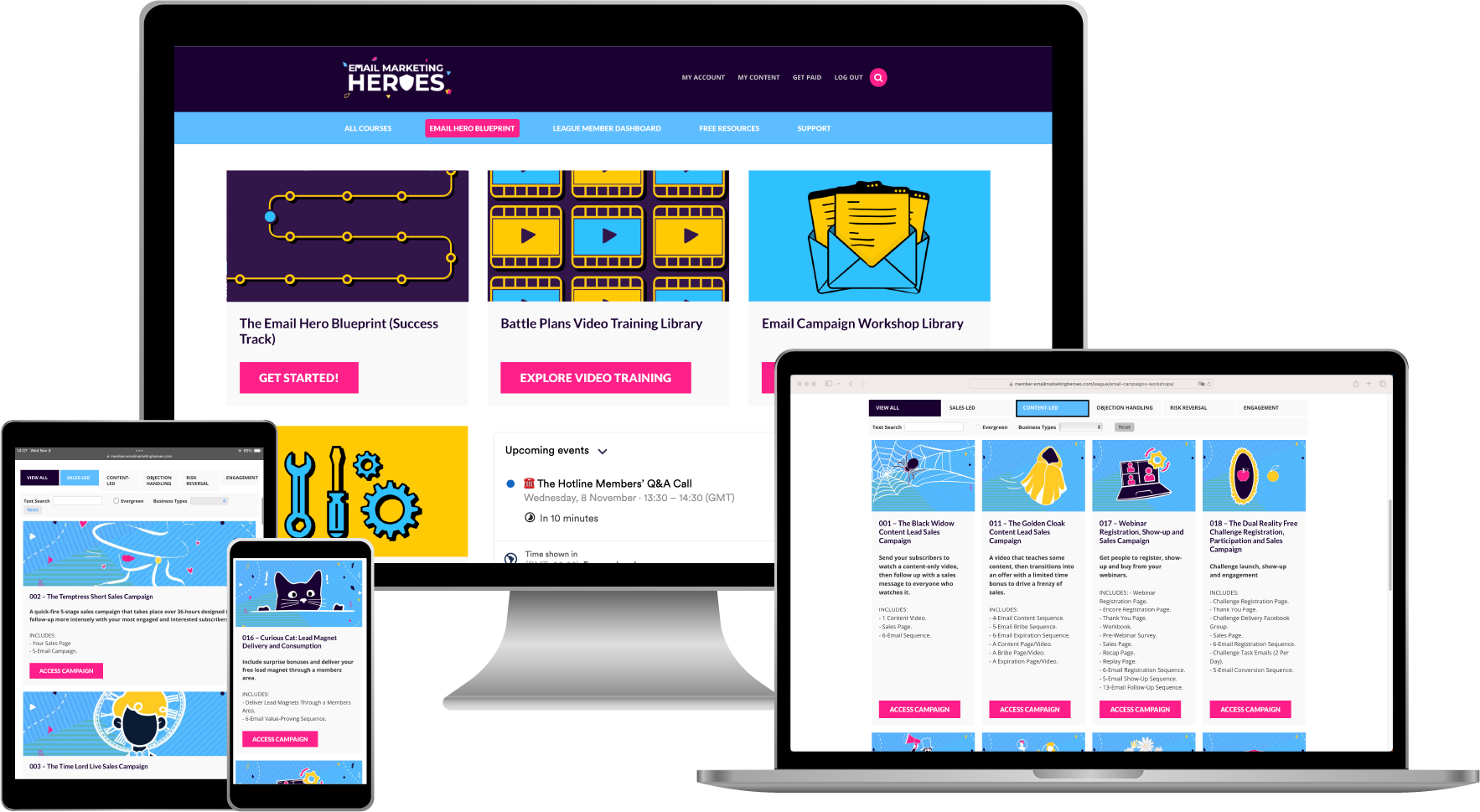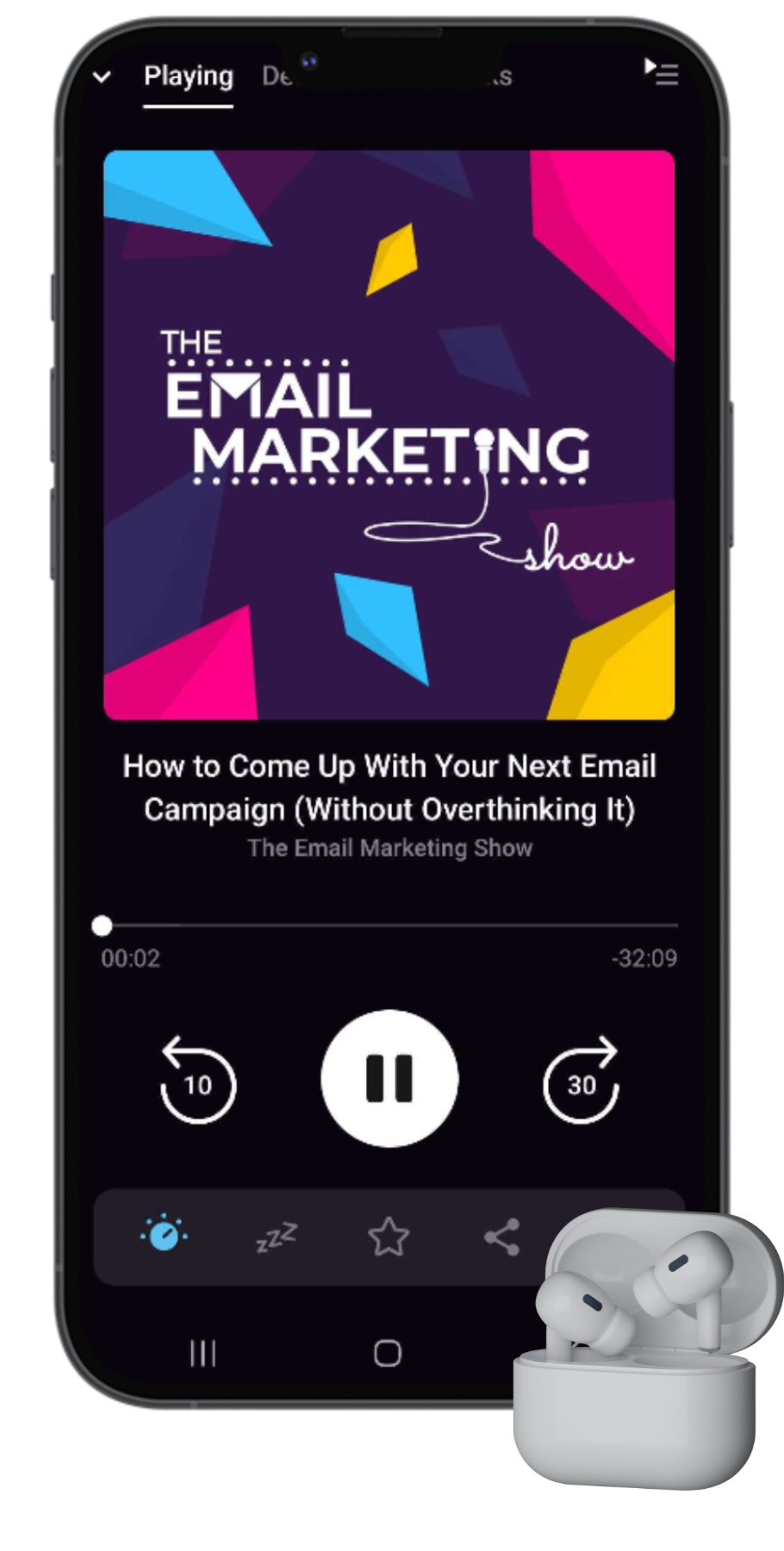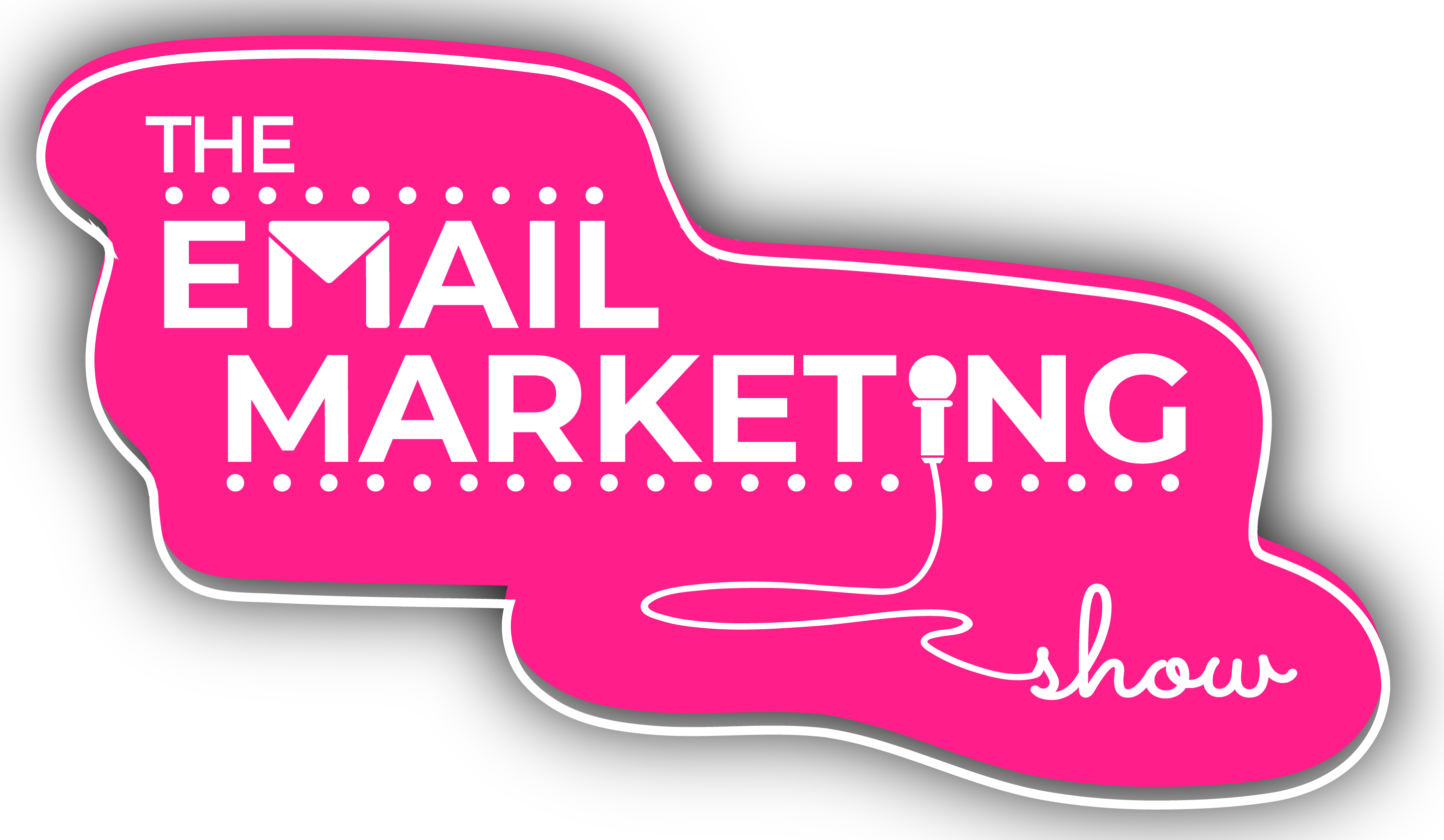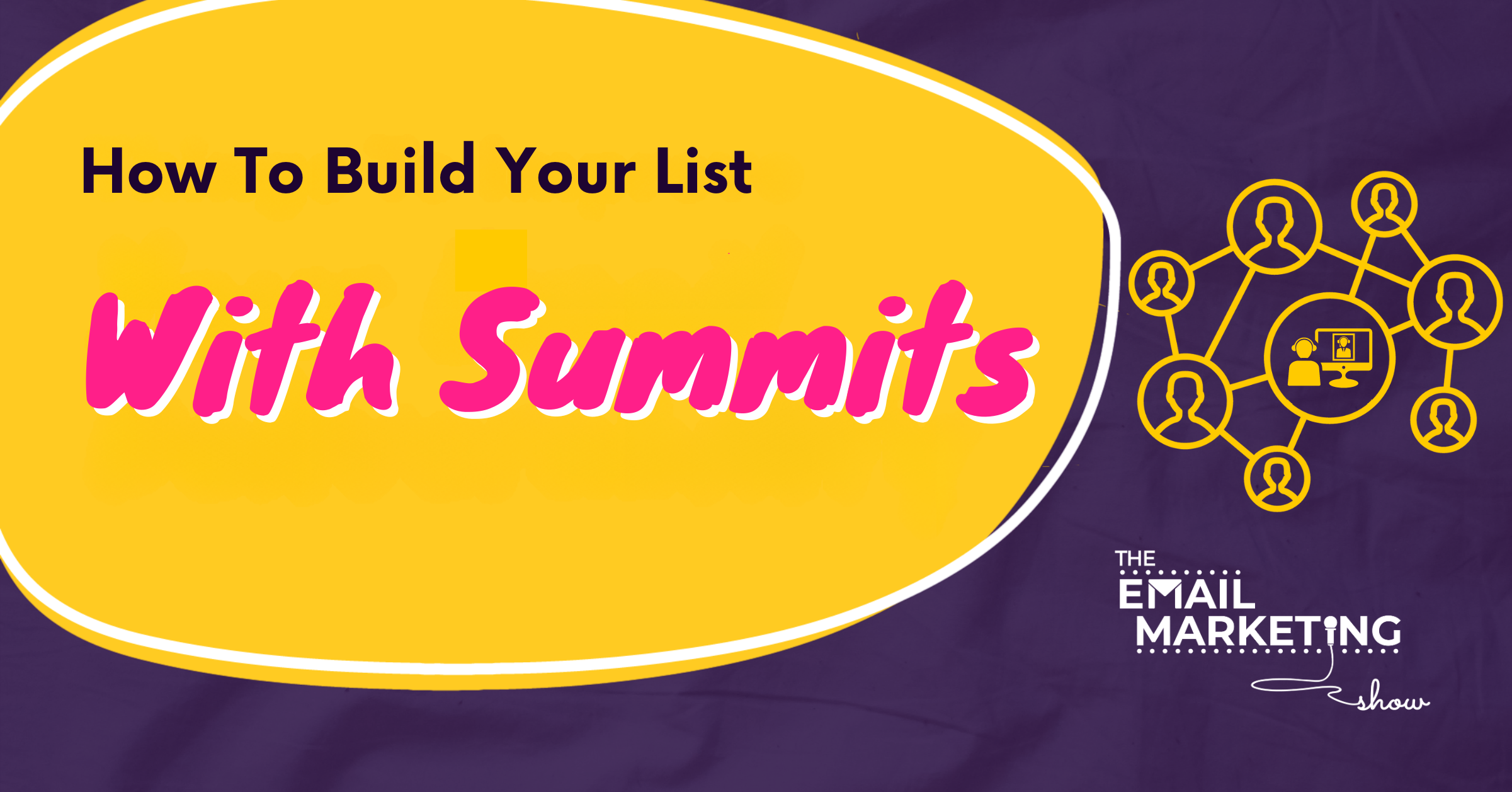
How To Use Summits To Get Visible (Even If You’re An Introvert) And Build Your Email List, With Fifi Mason
How do you host your online summit or conference? Can you use a summit for list building and see more success in your business? We find out from our friend Fifi Mason, who's been running successful summits about personal branding for introverts for nearly 5 years.
Here are some awesome strategies and tips to make summits as successful and stress-free as they can be.
Let's go!
SOME EPISODE HIGHLIGHTS: (1:16) Check out our sponsor Zerobounce! (1:47) Who is Fifi Mason and what is an online summit? (4:29) Why run a summit? (8:30) Behind the scenes of organising a summit. (13:37) Tip 1: Give yourself at least 90 days to plan and organise your summit. (16:04) Tip 2: Narrow your niche. (18:10) Tip 3: Choose your speakers strategically. (22:14) Tip 4: Make use of your existing tech first. (27:46) Tip 5: Pre-record the sessions. (30:53) Subject line of the week with Fifi Mason.
Who is Fifi Mason and what is an online summit?
Fifi helps introverted coaches and business owners who struggle to be visible and be the face of their business. She supports her clients in finding ways to work with their energy and personality, as not everyone with a personal brand needs to have an outgoing, gregarious personality to be successful.
The type of summits Fifi runs are pre-recorded five-day free events featuring multiple speakers. The sessions go out at set times, and attendees have 24 hours to watch the replays for free. After that, they can upgrade to an all-access pass, which allows them to watch all the recordings (and other content) after the initial 24 hours. A summit could be shorter or longer and a mixture of pre-recorded and live sessions – you (the host) get to decide how you want to run it. But this is the format Fifi has experience of.
Why run a summit?
An online summit is great for list building as your speakers and affiliate partners will promote the summit for you. Attendees will become warm leads for your business, so good money can be made from summits.
Here's how summits are a ‘win' for everyone:
- Attendees get high value for free and without the need to purchase anything if they can't afford to pay for content or training just yet.
- The speakers can become affiliates and earn an affiliate fee if they bring people from their audiences to the summit. Fifi also asks her speakers to offer a free giveaway to attendees, which means people can sign up for the speakers' email lists.
- As for the host, it’s a great opportunity to make new connections and build authority by hosting an event with incredible speakers and grow their email list by being exposed to the speakers' audiences. The host also makes money from the sales of the All Access Pass and anything extra they might want to offer.
No one is getting the short end of the stick – everyone who participates in the summit gets something out of it. All in all, a summit is a great way to build rapport with other speakers and with your audience and to convert people into customers.
Behind the scenes of organising a summit
Fifi says that organising her first summit felt daunting, especially when she realised how many tasks were needed. But her biggest barrier was the idea of interviewing speakers, as she'd never done that before. The speakers she wanted to invite were respected in the industry and had made a name for themselves – she almost felt there was a status gap there. And at first, that stopped Fifi from approaching people.
But during the lockdown, Fifi decided to go ahead and organise her first summit – everyone was online, so it felt like the perfect opportunity to reach people. As an introvert, the idea of connecting with people, managing new tasks, and promoting the event felt like a lot. There's a huge amount of work involved, so you need to be prepared for it. But it's also possible to find ways that work with your energy and personality. It's about working strategically in a way that works for you.
Running a summit for the first time requires the most amount of work because you need to set everything up from scratch. You're building the foundations of something new. But once that's done, it becomes an asset for your business, and you can build on top of those initial foundations.
Summits are now automated in our system – every year before we roll one out, we familiarise ourselves with the sequence and tasks and update the copy (dates, speakers, etc.) but the foundations are already there. Every time you re-run your summit, you can tweak it, improve it, and add nuances to it. The idea is to start with the best you can do at the time and then add to that year on year.
5 strategies for a successful summit
Here are five recommendations from Fifi to make sure your first (or next) summit is a success.
1. Give yourself at least 90 days to plan and organise your summit
You need at least 90 days to reach out to the speakers and give them enough time to add the event to their promotional calendar and align with what they've already planned. This way, they can promote your summit to their audiences. If you're approaching big names, expect that it might take even longer for you to hear back, and for the speaker to commit to participating.
2. Narrow your niche
Be sure you know exactly who you’re targeting. Who do you want to attend your summit and why? Pick a specific topic and reason why you’re creating this summit for a particular audience. This is crucial because if you’re too broad, you’ll up not targeting enough of your audience's needs. Have a narrow and specific niche for your summit, and if you’re launching a product or service at the back of your summit, their topics need to be closely tied together.
3. Choose your speakers strategically
If you don't choose your speakers carefully, you might not have enough people registering and attending your summit. You'll want enough speakers that have the kind of audience you want to target.
Ideally, you'll have different types of speakers at your event:
- Speakers with a decent following and a few thousand people on their socials. Fifi doesn’t make this a requirement, but it'd be great if your speakers could promote the event to their audiences, as this helps you reach more people.
- A-listers with millions of subscribers and followers. These types of speakers might not promote your summit, but they’ll attract people to it because they are sought-after speakers that attendees want to see.
- Speakers you’ve chosen specifically because of the valuable topics they can talk about, even if they don't have much of an audience.
All in all, you want a balance of speakers – some bring status, some deliver great content, and others attract an audience.
If you're expecting your speakers to promote your summit, ask them to commit to a date when they'll email or post about it. You can then hold them to that commitment and make sure they schedule the summit promotion on the dates they agreed.
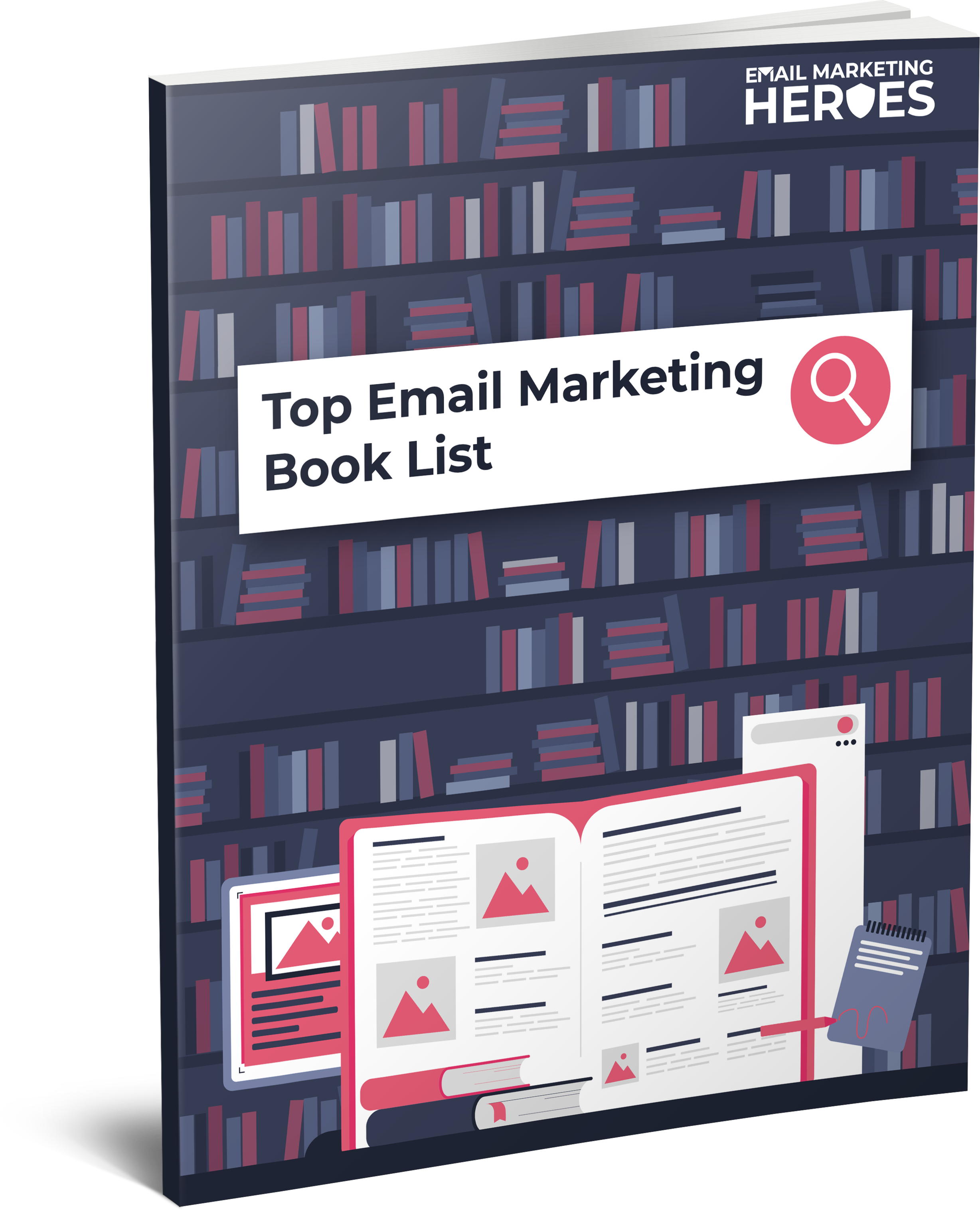
The Top 10 Books To 'Power Up' Your Email Marketing
10 book recommendations that will improve all areas of your email marketing (including some underground treasures that we stumbled upon which have been game-changing for us).
4. Make use of your existing tech first
Don’t fall into the trap of investing in new tech when you haven’t explored what you already have. Shiny object syndrome, anyone? This is a trap that Fifi fell into in the past, so her advice is to review the technology you already have and pay for, and see if that works for you. This avoids unnecessary extra costs but also removes the inevitable learning curve that comes with introducing something new. Event planning and organising are exhausting in themselves without adding new complexities!
As a general rule, keep it simple – for yourself, the speakers, and your audience. Don’t introduce additional obstacles – use the technology your audience is already familiar with and reduce the amount of friction. There'll be super fancy platforms out there that will do a lot for you, but don't add the stress of having to learn something new (for yourself and your audience), as it’s only going to make things more difficult and therefore less accessible.
5. Pre-record the sessions
Fifi has recently experimented with hybrid events that are part pre-recorded and part live, but she recommends pre-recording your sessions with the speakers. If you’re an introvert, hosting the whole summit (depending on how long it might be) can use a lot of your energy.
This is why Fifi pre-records the interviews with her speakers and uses software (such as StreamYard) to stream them as if they were live. This is all set up in advance, so when it comes to the summit, she can sit in the background, observe, and correct whatever needs tweaking, rather than being the face of it all.
Of course, this is just a suggestion if you’re more introverted and not as forward-facing or want to be ‘on’ all the time. But you can choose to run a mixture of pre-recorded content and live streams. You could also have a few live workshops during the summit that are run by other people, so it's not always you presenting. The key is to collaborate in smarter ways.
Subject line of the week with Fifi Mason
Fifi’s subject line is “Introverts get lonely too.” It's one she sent out during her second summit and that she's used in a lot of campaigns since. It’s highly specific to her audience, and that's why it works. Also, what makes this interesting is that Fifi's taken an assumption about introverts (they don't get lonely because they want to be alone) and spun it into a new truth. So check it out!
Useful Episode Resources
Want to connect with Fifi?
You can find Fifi on her website. Fifi has also put together a FREE download with a 90-day task checklist that includes everything you need to organise a successful summit. You can find it here.
Related episodes
9 Lessons from The Inbox Online Email Marketing Conference.
Lessons Learned from Running Our 2-Day INBOX Event.
Run Your Own Online Summit – Profit and List Growth with LeeAnn Marie Webster.
FREE list to improve your email marketing
If you want to write better emails, come up with better content, and move your readers to click and buy, here's how. Here's a list of our Top 10 most highly recommended books that will improve all areas of your email marketing (including some underground treasures that we happened upon, which have been game-changing for us). Grab your FREE list here.
Join the FREE Facebook group
Do you want to chat about how you can maximise the value of your email list and make more money from every subscriber? There's a way! Every business is different, so come and hang out in our FREE Facebook group, the Email Marketing Show Community for Course Creators and Coaches. You'll find a lot of training and resources, and you can talk about what you're up to.
Try ResponseSuite for $1
This content is sponsored by ResponseSuite.com, the survey quiz and application form tool that we created specifically for small businesses like you to integrate with your marketing systems to segment your subscribers and make more sales. Try it out for 14 days for just $1.
Join The Email Hero Blueprint
Want more? Let's say you're a course creator, membership site owner, coach, author, or expert and want to learn about the ethical psychology-based email marketing that turns 60-80% more of your newsletter subscribers into customers (within 60 days). If that's you, then The Email Hero Blueprint is for you.
This is hands down the most predictable, plug-and-play way to double your earnings per email subscriber. It allows you to generate a consistent sales flow without launching another product, service, or offer. Best news yet? You won't have to rely on copywriting, slimy persuasion, NLP, or ‘better' subject lines.
Subscribe and review The Email Marketing Show podcast
Thanks so much for tuning into the podcast! If you enjoyed this episode (all about how to use buyer psychology in email marketing) and love the show, we'd appreciate you subscribing and leaving us a review of the show on your favourite podcast player.
Not only does it let us know you're out there listening, but your feedback helps us to keep creating the most useful episodes so more awesome people like you can discover the podcast.
And please do tell us! What do you really fill your working days with if you don't spend time on email marketing? We'd love to know!

